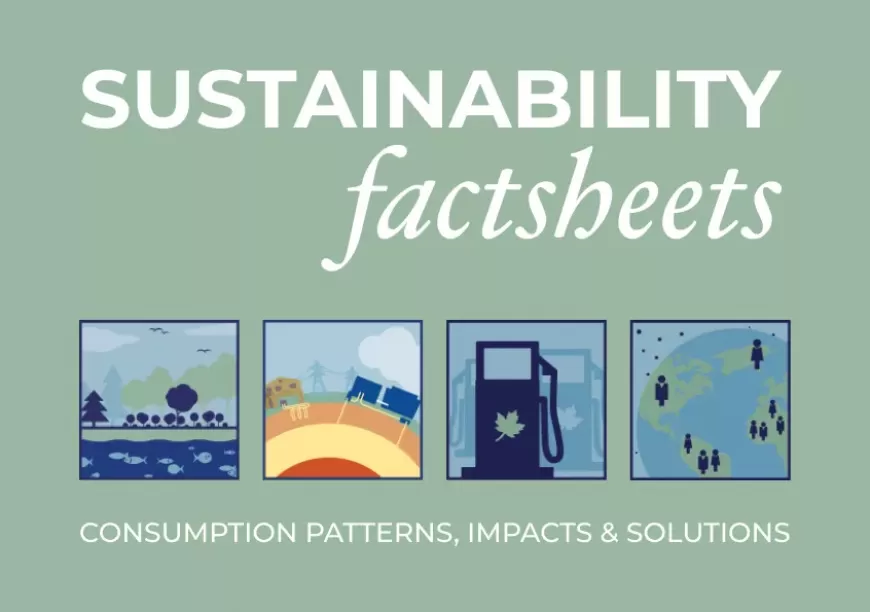
 back to all news
back to all news
Now available: 2022 edition of peer-reviewed Sustainability Factsheet Collection covering consumption patterns, impacts and solutions

Did you know that the average North American household uses roughly 240 gallons of water daily? Or that the Department of Energy estimates that 75% of U.S. energy will come from fossil fuels in 2050, which is widely inconsistent with IPCC carbon reduction goals? Did you know that just 16¢ of every dollar spent on food in 2020 went back to the farm, whereas, in 1975, it was 40¢?
Facts matter, which is why the University of Michigan’s Center for Sustainable Systems (CSS) has, since 2001, developed a growing set of peer-reviewed factsheets that cover topics including energy, water, food, waste, buildings, materials, and transportation systems. Updated annually, the 2022 edition contains 30 factsheets with more than 2,282 facts and 139 graphics compiled from 1,020 sources. The factsheets are downloaded more than half a million times annually.
The factsheets synthesize data from government agencies, national laboratories, academia, industry sources, and NGO publications, providing an invaluable resource for policymakers, business professionals, students and teachers looking for peer-reviewed information about patterns of use, life cycle impacts and sustainable solutions. All statistics are reported as concise facts, tables and figures; sources for all data are cited.
In addition, CSS has compiled a collection of resources for teachers, with videos, podcasts, games and activities that can be used to explore sustainability issues in classrooms.
The factsheets cover a broad range of sustainability topics, including:
- Sustainability Indicators (U.S. environmental footprint, biodiversity, social development indicators, carbon footprint, environmental justice)
- Energy (U.S. energy system, U.S. renewable energy, wind energy, photovoltaic energy, biofuels, nuclear energy, geothermal energy, unconventional fossil fuels, U.S. grid energy storage)
- Materials (plastic waste, U.S. material use, municipal solid waste, critical materials)
- Food (U.S. food system)
- Water (U.S. water supply and distribution, U.S. wastewater treatment)
- Built Environment (U.S. cities, residential buildings, commercial buildings, green IT)
- Mobility (personal transportation, autonomous vehicles)
- Climate (greenhouse gasses, climate change: science and impacts, policy and mitigation)
The Center for Sustainable Systems is running a Fund the Facts campaign! Your contribution to this campaign will help make the continuation of this work possible. Thank you for your support!

